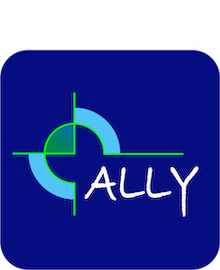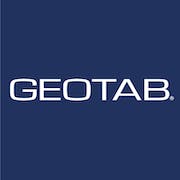Looking for fleet management software? Our comprehensive buyer's guide compares top solutions in the industry. Get valuable insights to streamline your fleet operations.
As a fleet manager, one of your top priorities is ensuring your fleet is operating at maximum efficiency and safety. One of the key tools at your disposal is fleet management software, which can help you achieve your goals and save your business time and money. But with so many options on the market, choosing the right one can be overwhelming. In this guide, we'll walk through the key features you should look for in this system. By the end of this guide, you'll be equipped with everything you need to make an informed decision and take your fleet's performance to the next level.
What is fleet management software?
This is a comprehensive solution that helps businesses to manage all aspects of their vehicle fleet, from acquisition to maintenance, monitoring, dispatching, routing, safety, and compliance. This modern software technology is designed to streamline operations, improve efficiencies, reduce costs, and ensure regulatory compliance. It is used by companies of all sizes across various industries to gain better control of their fleet operations and achieve their business objectives
Here are some of its common use cases:
Asset tracking
It enables real-time tracking of vehicles, inventory and assets, providing businesses with accurate location data to help manage their operations.
Maintenance management
With predictive maintenance features, this fleet solution helps businesses reduce downtime and costly repairs by automating routine vehicle maintenance tasks and scheduling inspections.
Fuel management
By tracking fuel consumption, a fleet management program helps businesses improve fuel efficiency, identify fraud and reduce fuel costs.
Driver management
It provides businesses with insights into driver behavior, performance, and safety, promoting better driving habits and reducing accidents.
Compliance management:
It also ensures compliance with various laws, regulations, and safety requirements, safeguarding organizations from risks, fines, and legal liability.
Fleet management software (FMS) is used by a wide range of businesses in various industries. Here are some examples:
- Logistics and distribution companies that rely on a large fleet for transportation and delivery.
- Construction companies that use heavy equipment and trucks to move materials, equipment, and personnel.
- Government agencies that manage a fleet of vehicles for public service purposes.
- Emergency service providers, such as police and fire departments that require reliable and efficient transportation to respond to critical situations.
What are the benefits of adopting a fleet management solution?
Nowadays, businesses that rely on any kind of vehicles, from delivery trucks to construction equipment, need to manage them effectively to be competitive. This fleet application provides a comprehensive solution that enables businesses to manage their entire fleet from a single platform and improve overall operational efficiency.
Here are the main benefits to consider:
- Real-time tracking and monitoring: It allows businesses to track and monitor their vehicles in real-time. This feature ensures that businesses always know where their vehicles are and can manage them more effectively.
- Better fuel management: It can help businesses manage their fuel expenses by providing tools to track fuel consumption, identify inefficient vehicles, and optimize routes.
- Preventive maintenance: An advanced feature of a fleet management tool is that it can track the condition of each vehicle and alert you when it's time for maintenance. This helps to prevent breakdowns and ensures vehicles are always in good working condition.
- Improved safety: A fleet management platform can also help businesses to prioritize safety and reduce accidents by establishing a safety program that alerts drivers when they are engaging unsafe driving behaviors such as speeding or harsh braking.
- Optimized routes: By analyzing data on traffic, road conditions, and vehicle performance, this essential technology can help businesses optimize the routes their drivers take to improve efficiency and reduce delivery times.
- Cost savings: An efficient fleet management program can help businesses lower fuel expenses, reduce maintenance costs and minimize downtime of vehicles, leading to significant cost savings. FMS can help economize fuel expenses by at least 30%.
- Increased (ROI) return on investments: A fleet management solution significantly boosts ROI. Enhanced visibility into fleet operations enables better decision-making, leading to increased productivity and profitability. As per the Fleet Technology Trend report by Verizon, 45% of 1,200 respondents achieved positive ROI in 11 months or less with fleet management solutions, increasing by 18.4%.
10 key features of fleet management software
FMS is a rapidly growing technology that provides businesses with a way to manage their vehicles, drivers, and assets more effectively. With a wide range of features available, deciding which one to use can seem overwhelming.
To help businesses understand the capabilities of a fleet management system, we have compiled a list of 10 common features:
1. GPS tracking:
With GPS tracking, fleet managers can easily locate and track company vehicles and drivers in real-time, ensuring fleet operations run efficiently.
2. Route optimization:
It can optimize routing for vehicles, allowing businesses to plan more fuel-efficient routes, save time, and reduce carbon emissions.
3. Maintenance scheduling:
The fleet app can automatically schedule vehicle maintenance, reducing the risk of vehicle failure and improving road safety.
4. Fuel monitoring:
With fuel monitoring features, fleet managers can track fuel consumption and expenses, monitor fuel levels, and reduce costs by identifying and addressing fuel inefficiencies, such as vehicle idling. Research has shown that nearly 55% of fleets that adopt a fleet management system development stated a significant reduction of the fuel costs, which proves the effectiveness of such solution implementation.
5. Driver safety:
It can monitor driver behavior and provide alerts and feedback on speeding, harsh acceleration or braking, and other risky driving habits, helping businesses maintain a safe working environment.
6. Electronic logs:
Electronic logs automatically track driver’s hours of service, allowing fleet managers to comply with local and federal regulations, increase productivity, and reduce paperwork.
7. Asset management:
It can also track assets such as trailers, generators, and other equipment, streamlining maintenance, improving asset utilization, and minimizing downtime.
8. Performance analytics:
The system can track and analyze vehicle, driver, and asset performance data, providing valuable insights into fleet operations and helping businesses make data-driven decisions.
9. Dispatch and communication:
The software allows for real-time dispatch, automatically assigns orders to drivers, and provides better communication between dispatchers, drivers, and customers.
10. Customization:
Many software platforms allow businesses to customize features to match their specific needs and requirements, creating a personalized, tailored solution.
Fleet management software offerings are abundant, with features varying across multiple platforms. Businesses should evaluate their operational needs and goals before selecting a software platform that meets those specific requirements.
Things to consider when purchasing a fleet management package
Fleet management software is an essential tool for businesses that operate on the road. It can help manage vehicle maintenance, optimize routes, track driving behavior, and monitor fuel consumption. However, not all fleet management solutions are created equal, and businesses must carefully evaluate their options before making a purchase decision.
Here are some important factors that businesses should consider when purchasing this solution:
- Features and functionality: Look for a system that offers the features and functionality that match your business needs. Make sure the software can handle your fleet size, monitor performance metrics, and integrate with other business systems.
- Ease of use: Fleet managers and drivers should be able to quickly learn and adopt the system. A solution that is complicated or requires extensive training can take away valuable resources and time from other important business operations.
- Fleet visibility: Being able to monitor your fleet in real-time is essential for efficient management. Look for one that provides accurate and up-to-date information on vehicle location, fuel usage, driving patterns, and maintenance needs.
- Data security: It collects sensitive and confidential information about your business operations. Make sure that it adheres to strict data privacy and protection regulations, such as GDPR and HIPAA.
- Customer support: Look for a vendor that provides exceptional customer support. You want to make sure that any issues can be resolved quickly and efficiently, so that your business can continue to operate smoothly.
- Cost: Consider the cost of purchasing and implementing the solution, as well as ongoing fees for support and maintenance. Make sure the benefits of the software outweigh the costs and that it fits into your overall budget.
Ultimately, selecting the right fleet management program can improve operational efficiency, reduce costs, and increase profitability. By carefully evaluating your options and considering these six factors, you can make an informed business decision that will benefit your operations in the long term.
Industry trends for fleet management software
As the fleet management industry continues to evolve at a rapid pace, staying up-to-date with trends and innovations is imperative for any business that relies on a fleet to operate. With the advent of new technological advancements and ground-breaking mobility solutions, the changes that will shape the industry in 2024 and beyond are poised to be transformative. Here are some of its most significant trends:
1. Integration of IoT and telematics:
As more fleet and transport companies prioritize efficiency, the integration of internet of things (IoT) and telematics will enable fleet managers to collect vast quantities of data from their vehicles and drivers in real-time. This will allow for better decision-making, improved safety, and optimization of fleet performance.
2. Increased focus on driver safety:
Fleet managers are paying greater attention to driver safety and well-being. New technology solutions that incorporate features such as collision avoidance and fatigue monitoring are already being implemented in many fleets, reducing the risk of accidents and increasing driver satisfaction.
3. Use of advanced analytics:
The use of advanced data analytics tools to mine vehicle and driver data is becoming increasingly popular among fleet managers. These tools analyze various aspects of fleet operations, including fuel consumption, vehicle utilization, and driver behaviors. Such insights can be used to make informed decisions about how fleets can optimize their operations while reducing costs.
4. Rise of artificial intelligence (AI):
With the advent of AI and machine learning, fleet managers can use technology to analyze data on driver behaviors, weather conditions, and traffic patterns to optimize delivery routes and schedules. This will help improve efficiencies and reduce labor costs.
The fleet management industry is experiencing unprecedented growth and change, and fleet managers who can keep pace with the rapidly evolving technological landscape will be best positioned to succeed in the years to come. Adoption of these emerging trends will be crucial to staying competitive and achieving operational excellence in 2024 and beyond.
Conclusion
Investing in fleet management software is a strategic imperative for companies seeking to optimize their transportation operations and maximize profitability. By harnessing the power of advanced technology and real-time data analytics, this tool empowers businesses to enhance operational efficiency, minimize costs, and improve overall fleet performance. From streamlined route planning and optimized vehicle utilization to proactive maintenance scheduling and improved driver safety, the benefits are manifold. With greater visibility and control over their fleets, companies can make informed decisions, mitigate risks, and drive sustainable growth. In today's competitive landscape, where transportation plays a crucial role in supply chain management and customer satisfaction, the adoption of fleet management software is not just advantageous but essential for staying ahead of the curve and delivering superior value to customers.










